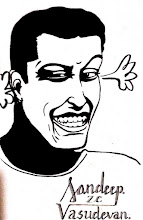Tuesday, July 19, 2011
Troy v1.1
I finally finished the Æneid yesterday. It’s been a labour of love and general boredom and I’ve finally managed to plough through it to the end.
First, it’s about this bloke called Æneas, a Trojan prince, Hector’s cousin, who survives the sack of Troy and takes the survivors on a trip to Italy where he is destined to start a new civilisation – which will eventually become Rome. Unfortunately, he incurs the wrath of Juno the queen of Olympus and a total bad-ass bitch, and she gets it into her mind to make him sleep with the fishes. So along the way through the machinations of Juno, Æneas and his Trojans get waylaid, battered by storms, lost, found, laid, cause a queen’s death, then land in Italy and try to take over. To which the aboriginal Italins say, “Bugger this!” and have at him for taking their lands away. Or something. Anyway, there’s this great big battle in the end and Mezentius the atheist and his son Lausus the not-so-atheist-as-all-that and a whole bunch of people get killed and the old king surrenders and gives Æneas his daughter’s hand in marriage and unto half his kingdom. And so was born Rome. Nobody said it was born in a day either.
Now, nobody likes a rollicking tale of gods and magic swords and prophecies and monsters being chained to rocks to be eaten by ravenous virgins more than I do (which is why I learnt quite a bit of Elven language Quenya from the Lord of the Rings), but this one’s a bit contrived, to say the least. This was because the Æneid was commissioned by Emperor Augustus, the first emperor of Rome, and it was seen as an attempt to deify the Roman imperial line by making them all descended from Æneas, a demi-god whose mother was Venus. So Æneas is a “pious” and “righteous” hero, someone who is guided by a pre-ordained fate, an inexorable rope around his neck drawing him to his destiny. Much, as it were, like the emperors of Rome.
This is the whole bugger-up for me: the story moves forward entirely on the whims and fancies of the various gods. Heroes are heroes if they are allowed to be by the gods. Humans follow the orders the gods give, and if they transgress they’re turned into a spider or something. So our man is driven hither and thither by various storms, tempests and other distractions raised by Juno (Away team). But his mum Venus (Home team) comes to his rescue every now and then when he’s a bit under the cosh, and rushes to Papa Jupiter to Make Mother Stop. And Jupiter keeps figuring out which side he wants to be on, and which woman will sodomise him less for it. So basically, all the humans do is run errands for the gods. It’s all a bit messed up that way.
But where Virgil succeeds is in his characters, especially Æneas. The poem is a tale of this man’s struggle against his piety, his destiny and his emotions. He is a defeated prince when you first meet him, fighting as Troy is sacked. His despair at the defeat is matched by his determination to fulfill his prophecy to settle the survivors of Troy in a new land. Æneas is a man who is tied to his task to the cost of everything else. When he finds love in Carthage, he is ticked off by Jupiter; he abandons his lover and leaves, knowing that she would kill herself if he did. When the Italians force war upon him, he resists until no longer possible, blaming the gods for it. But he sacrifices everything he wants, all his own emotions and compassions and loves and needs in order to fulfill his destiny. And this takes a big emotional toll on him, revealed in the end where his raw anger explodes in the final single combat with his enemy. As the poem hurtles towards the end, you see Æneas revealed, the son of a god, the manifestation of vengeance, the crushed spirit of defeat reforged to rise again in glory. It is then that Æneas, and the Æneid, become and epic. It is the story of the man, not the games of the gods, that make this an epic.
Subscribe to:
Post Comments (Atom)


No comments:
Post a Comment